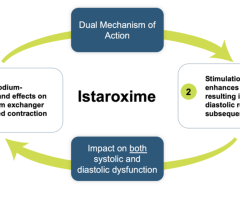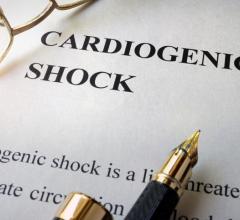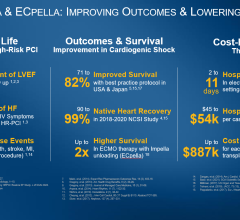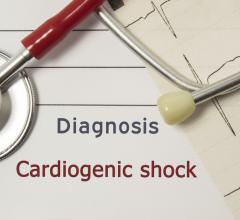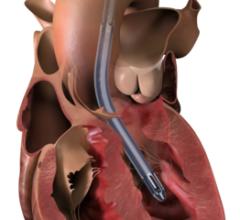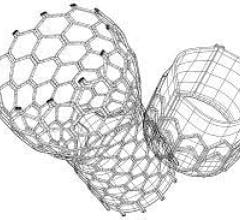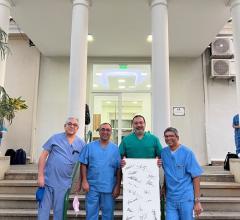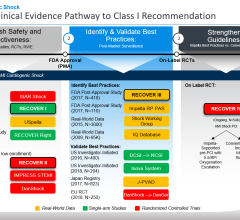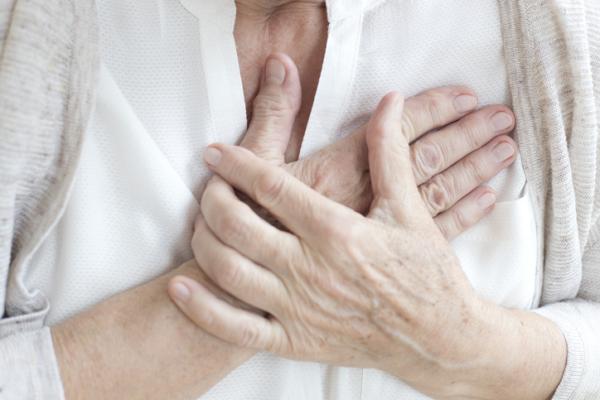
Image credit: Getty Images
March 22, 2022 – Women are less likely to receive lifesaving treatment for cardiogenic shock than men, according to research presented today at ESC Acute CardioVascular Care 2022, a scientific congress of the European Society of Cardiology (ESC).1
“The women and men in our study had similar clinical characteristics when they developed cardiogenic shock after a heart attack,” said study author Dr. Sarah Holle of Copenhagen University Hospital, Rigshospitalet, Denmark. “This was a retrospective study so it is difficult to know why clinicians made certain treatment decisions. But the findings indicate that greater awareness among health professionals that women have heart attacks and may develop cardiogenic shock could be a step towards equitable management and outcomes.”
Cardiogenic shock is a life-threatening condition in which the heart suddenly fails to pump enough blood to supply the body’s organs with sufficient oxygen. It is usually caused by a large heart attack. It is estimated that up to 10% of patients with heart attacks affecting a large area of the heart also develop cardiogenic shock. Only half of patients who experience cardiogenic shock will survive.
The aim of this study was to investigate differences in treatment and survival between women and men with a heart attack and cardiogenic shock.
The study included all consecutive adults admitted between 2010 and 2017 to two highly specialised centres providing cardiogenic shock care for two-thirds of the Danish population. Data on patient characteristics, treatment and 30-day mortality were extracted from medical records. Long-term mortality data were obtained from the Danish National Patient Registry.
A total of 1,716 heart attack patients with cardiogenic shock were enrolled in the study, of which 438 (26%) were women. The average age of women was 71 years compared with 66 years for men. Patient characteristics were similar between sexes except for hypertension and chronic obstructive pulmonary disease which were more common among women. Women were significantly more likely than men to be initially admitted to a local hospital (41% women versus 30% men), while significantly more men presented with out-of-hospital cardiac arrest (25% women versus 48% men).
When shock occurred, women and men had comparable clinical parameters such as blood pressure, heart rate, plasma lactate (a marker of oxygen levels in the organs) and left ventricular ejection fraction (heart pump function).
Regarding treatments, significantly lower proportions of women received mechanical circulatory support (19% women versus 26% men), minimally invasive or surgical procedures to restore blood flow to blocked arteries (83% women versus 88% men), and mechanical ventilation (67% women versus 82% men). Women were significantly less likely than men to survive in the short- and long-term. At 30 days after the heart event, just 38% of women were alive compared with 50% of men. At 8.5 years, 27% of women were alive compared with 39% of men.
The researchers performed multivariate analysis to examine whether sex was independently associated with each therapy and with mortality. The analysis was adjusted for age and out-of-hospital cardiac arrest at presentation as both factors affect outcome in heart attack patients with cardiogenic shock and are known to differ between women and men with the condition. The analysis revealed that female sex was independently associated with lower use of mechanical circulatory support and with worse short- and long-term survival.
Dr. Holle said: “There is increasing evidence that women with acute heart problems are more likely than men to have non-specific symptoms such as shortness of breath, nausea, vomiting, coughing, fatigue, and pain in the back, jaw or neck. This might be one reason why more women than men in our study were initially admitted to a local, rather than specialist, hospital. Increased recognition that women may have symptoms other than chest pain could minimize delays in diagnosis and treatment and potentially improve prognosis.”
Dr. Holle concluded: “Treatment guidelines are based on studies which primarily enrolled men. Further research is needed to determine whether women and men with cardiogenic shock might benefit from different interventions.”
For more information: www.escardio.org/
Reference:
1 The abstract ‘Sex differences in treatment and outcome of patients with cardiogenic shock complicating acute myocardial infarction’ was presented during the session ‘Mechanical circulatory support - the when, how and why’ on March 19.
Related Women's Health Content:
Sex Differences in 'Body Clock' May Benefit Women’s Heart Health
Diagnostic Differences in Women’s Heart Health
New Advice Will Help Women with Congenital Heart Defects Navigate Pregnancy
VIDEO: Differences in Cardiac Complications and Presentation Between Men and Women — Interview with Cindy Grines, M.D.
Pregnancy-Related Heart Failure Strikes Black Women Twice as Often as Other Races
Cardiac Imaging Reveals Roots of Preeclampsia Damage in Pregnant Women
Marked Increase in Cardiovascular Risk Factors in Women After Preeclampsia
VIDEO: Sex Differences in Diagnosing Heart Disease in Women — Interview with Doreen DeFaria Yeh, M.D.
VIDEO: How to Build a Successful Women’s Heart Center — Interview with Malissa Wood, M.D.
Find more articles on women's heart issues in the Women's Cardiovascular Health channel

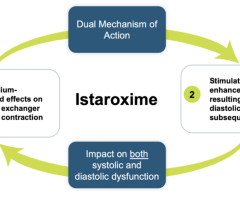
 April 28, 2023
April 28, 2023 
